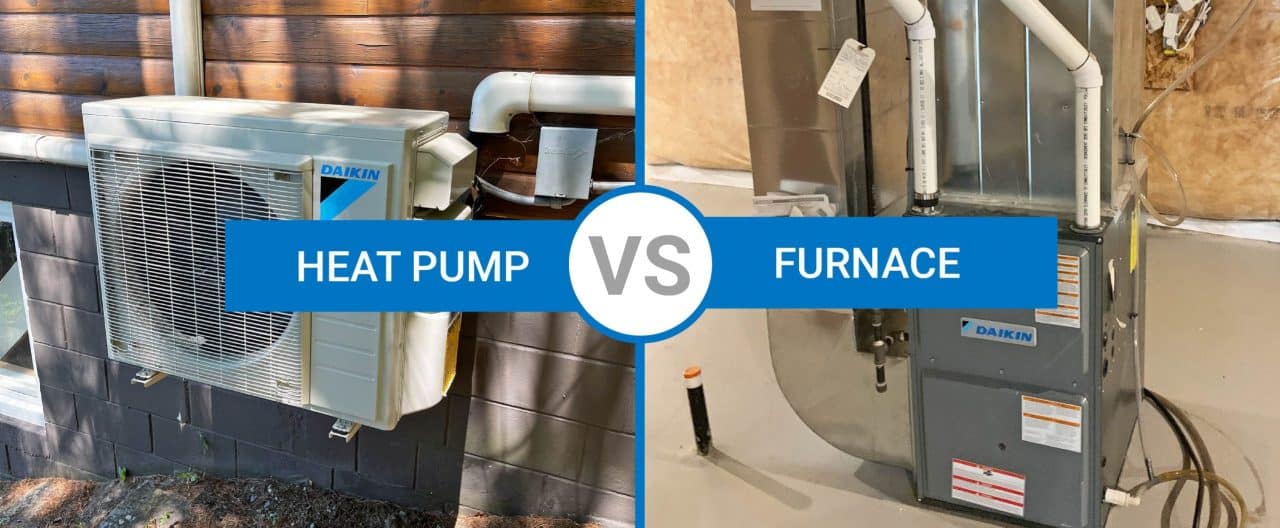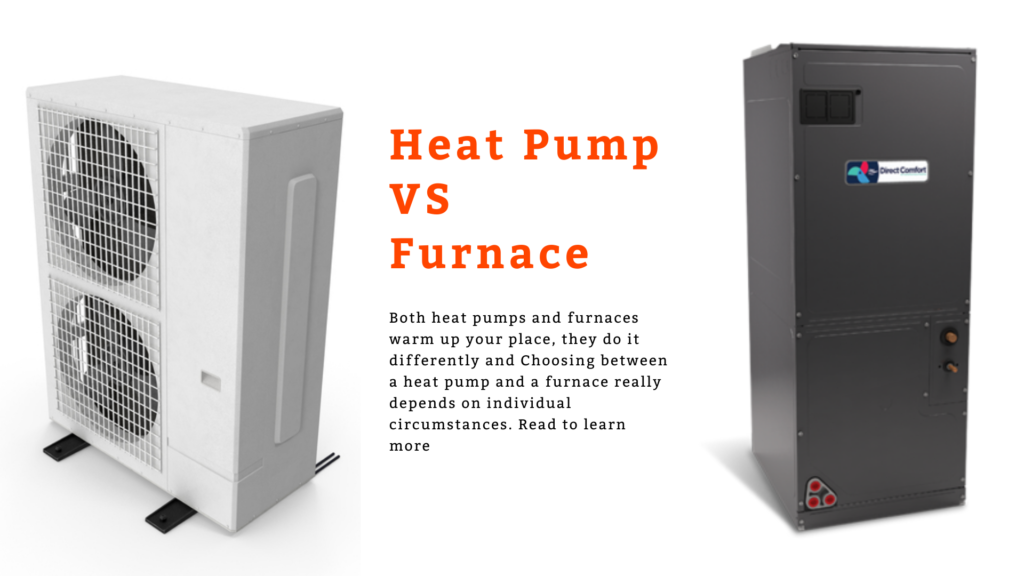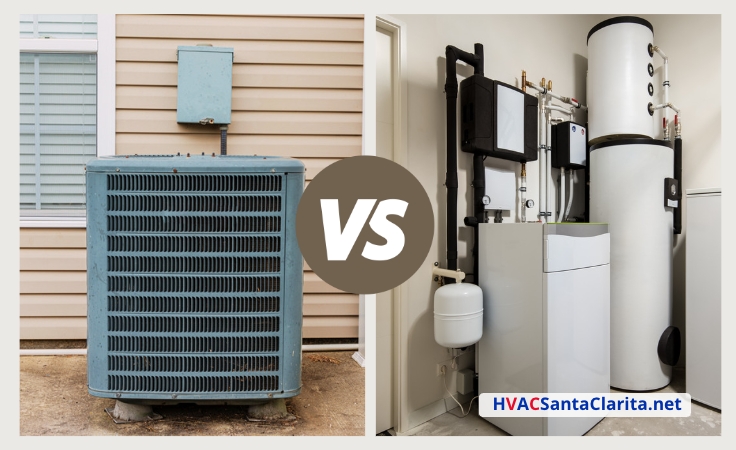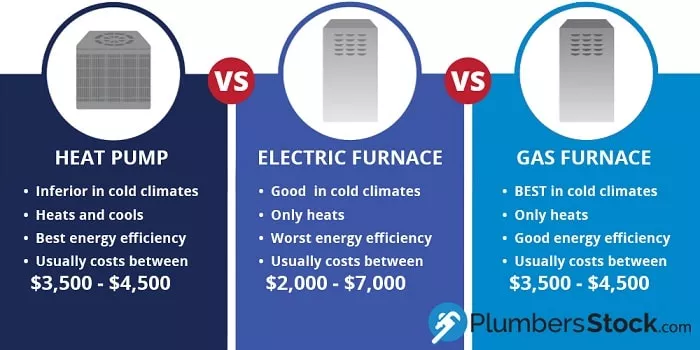Difference Between Heat Pump And Furnace
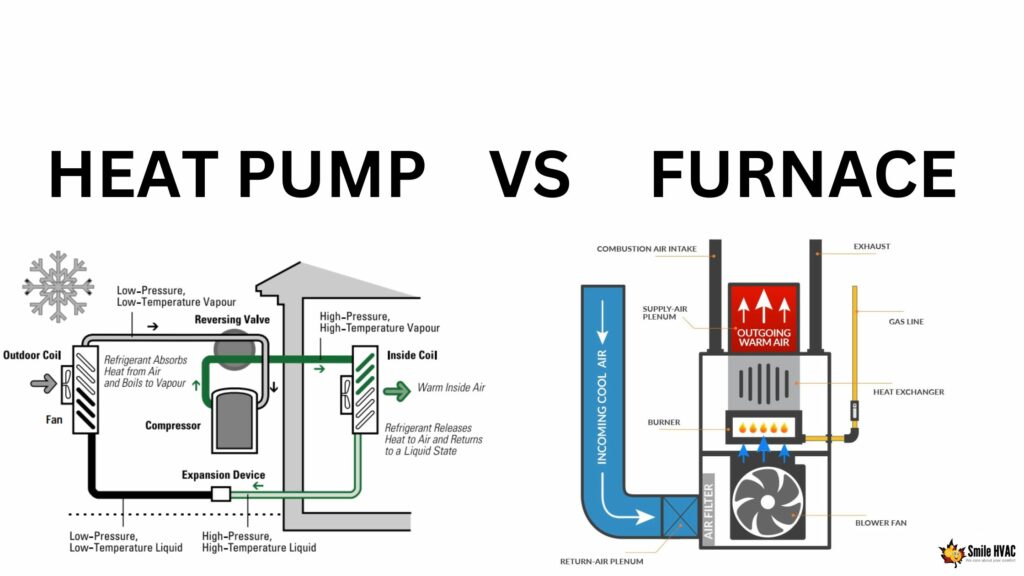
Frequently Asked Questions: Heat Pumps vs. Furnaces
Choosing the right heating system for your home or building is a significant decision. Two common options are heat pumps and furnaces. Understanding their differences is crucial for making an informed choice. This FAQ addresses some of the most common questions about heat pumps and furnaces, helping you navigate the selection process.
Question 1: What is the fundamental difference between a heat pump and a furnace?
The fundamental difference lies in how they generate heat. A furnace generates heat by burning fuel, such as natural gas, propane, or oil. This combustion process creates heat that is then distributed throughout your space.
A heat pump, on the other hand, doesn't generate heat. Instead, it moves heat from one place to another. In the winter, it extracts heat from the outside air (even when it's cold!) and transfers it indoors. In the summer, it reverses the process, extracting heat from your home and releasing it outdoors, acting as an air conditioner.
Question 2: Which is more energy-efficient: a heat pump or a furnace?
In most cases, heat pumps are more energy-efficient than furnaces. Here's why:
- Heat pumps move heat rather than generating it: Moving heat requires less energy than creating it through combustion. This is why heat pumps can achieve efficiencies greater than 100% (measured by HSPF and SEER).
- Furnaces lose some heat during combustion: No combustion process is perfectly efficient. Some heat is always lost up the flue or chimney. Furnace efficiency is measured by AFUE, and even the most efficient furnaces are still below 100%.
- Heat pumps provide both heating and cooling: A single heat pump system can replace both a furnace and an air conditioner, further contributing to energy savings.
However, the energy efficiency advantage of a heat pump can diminish in extremely cold climates. As outdoor temperatures drop significantly, a heat pump's ability to extract heat diminishes, and it may rely on supplemental electric resistance heating, which is less efficient.
Question 3: What are the climate considerations for choosing between a heat pump and a furnace?
Climate is a major factor in determining which system is best suited for your needs. Here's a breakdown:
- Heat pumps excel in moderate climates: Regions with mild winters and hot summers are ideal for heat pumps. They can efficiently provide both heating and cooling throughout the year.
- Furnaces are well-suited for cold climates: In areas with extremely cold winters, furnaces are often the preferred choice. They can reliably generate a large amount of heat, even when outdoor temperatures are very low.
- Hybrid systems are a good compromise: In some climates with moderately cold winters, a hybrid system that combines a heat pump and a furnace can be the most efficient and cost-effective solution. The heat pump handles heating in milder temperatures, and the furnace kicks in when it gets too cold for the heat pump to operate efficiently.
Consider your average winter temperatures and the frequency of extremely cold days when making your decision. A heating and cooling professional can provide specific recommendations based on your local climate data.
Question 4: What are the installation costs, and long-term operating costs, of each system?
Installation Costs: Generally, heat pumps can have a higher upfront installation cost than furnaces. This is due to the more complex components and installation process of a heat pump system. However, costs vary greatly depending on the brand, model, and complexity of the installation.
Operating Costs: Over the long term, heat pumps often have lower operating costs than furnaces, especially in moderate climates. This is because of their higher energy efficiency. While furnaces have lower installation costs, the ongoing cost of fuel (natural gas, propane, or oil) can add up over time.
Maintenance Costs: Both heat pumps and furnaces require regular maintenance to ensure optimal performance and longevity. Maintenance costs are generally similar for both types of systems.
To get a clear picture of the costs for your specific situation, get quotes from multiple HVAC contractors and consider both the upfront installation costs and the estimated long-term operating costs.
Question 5: What are the pros and cons of heat pumps?
Here's a summary of the advantages and disadvantages of heat pumps:
Pros:
- Energy-efficient: Heat pumps typically use less energy than furnaces, resulting in lower utility bills.
- Dual-purpose: Heat pumps provide both heating and cooling, eliminating the need for separate systems.
- Environmentally friendly: Because they use less energy, heat pumps have a smaller carbon footprint.
- Improved air quality: Modern heat pumps often include advanced air filtration systems, improving indoor air quality.
- Quieter operation: Heat pumps generally operate more quietly than furnaces.
Cons:
- Higher upfront cost: Heat pumps can be more expensive to install than furnaces.
- Reduced efficiency in extremely cold weather: Heat pump efficiency drops in very cold climates, potentially requiring supplemental heat.
- Can blow cooler air: Some people find the air blown by a heat pump in heating mode to be less warm than the air from a furnace, although this is often a perception issue rather than a performance problem. Newer models are mitigating this through better technology.
- Requires professional installation: Proper installation is crucial for optimal performance and efficiency.
Question 6: What are the pros and cons of furnaces?
Here's a look at the advantages and disadvantages of furnaces:
Pros:
- Reliable heat in cold weather: Furnaces provide a consistent and reliable source of heat, even in extremely cold temperatures.
- Lower upfront cost: Furnaces are typically less expensive to install than heat pumps.
- Warm air output: Furnaces deliver warm air quickly and efficiently, providing a comfortable heating experience.
- Long lifespan: Furnaces can last for many years with proper maintenance.
Cons:
- Lower energy efficiency: Furnaces are generally less energy-efficient than heat pumps, leading to higher utility bills.
- Requires fuel: Furnaces require a fuel source, such as natural gas, propane, or oil, which can be subject to price fluctuations.
- Only provides heating: Furnaces only provide heating and require a separate air conditioning system for cooling.
- Potential safety hazards: Furnaces involve combustion, which can pose potential safety hazards if not properly maintained.
- Can contribute to indoor air quality issues: Older furnaces may not have advanced air filtration systems and can contribute to indoor air quality problems.
Question 7: How do I choose the right system for my home?
Choosing the right heating system depends on several factors. Here are some key considerations:
- Climate: As discussed, climate is a primary factor. Heat pumps are best for moderate climates, while furnaces are better suited for extremely cold climates.
- Energy efficiency: Consider the long-term operating costs and potential energy savings. Heat pumps generally offer higher energy efficiency.
- Budget: Evaluate the upfront installation costs and the estimated long-term operating costs.
- Fuel availability and cost: If you're considering a furnace, assess the availability and cost of fuel in your area.
- Home size and insulation: The size of your home and the quality of your insulation will affect the heating and cooling load.
- Personal preferences: Consider your personal preferences for comfort and air quality.
The best way to make an informed decision is to consult with a qualified HVAC professional. They can assess your specific needs and provide recommendations tailored to your home, climate, and budget. They can perform a load calculation to determine the appropriate size of the heating and cooling system for your home.
By carefully considering these factors and seeking expert advice, you can choose the heating system that will provide optimal comfort, energy efficiency, and long-term value for your home.
